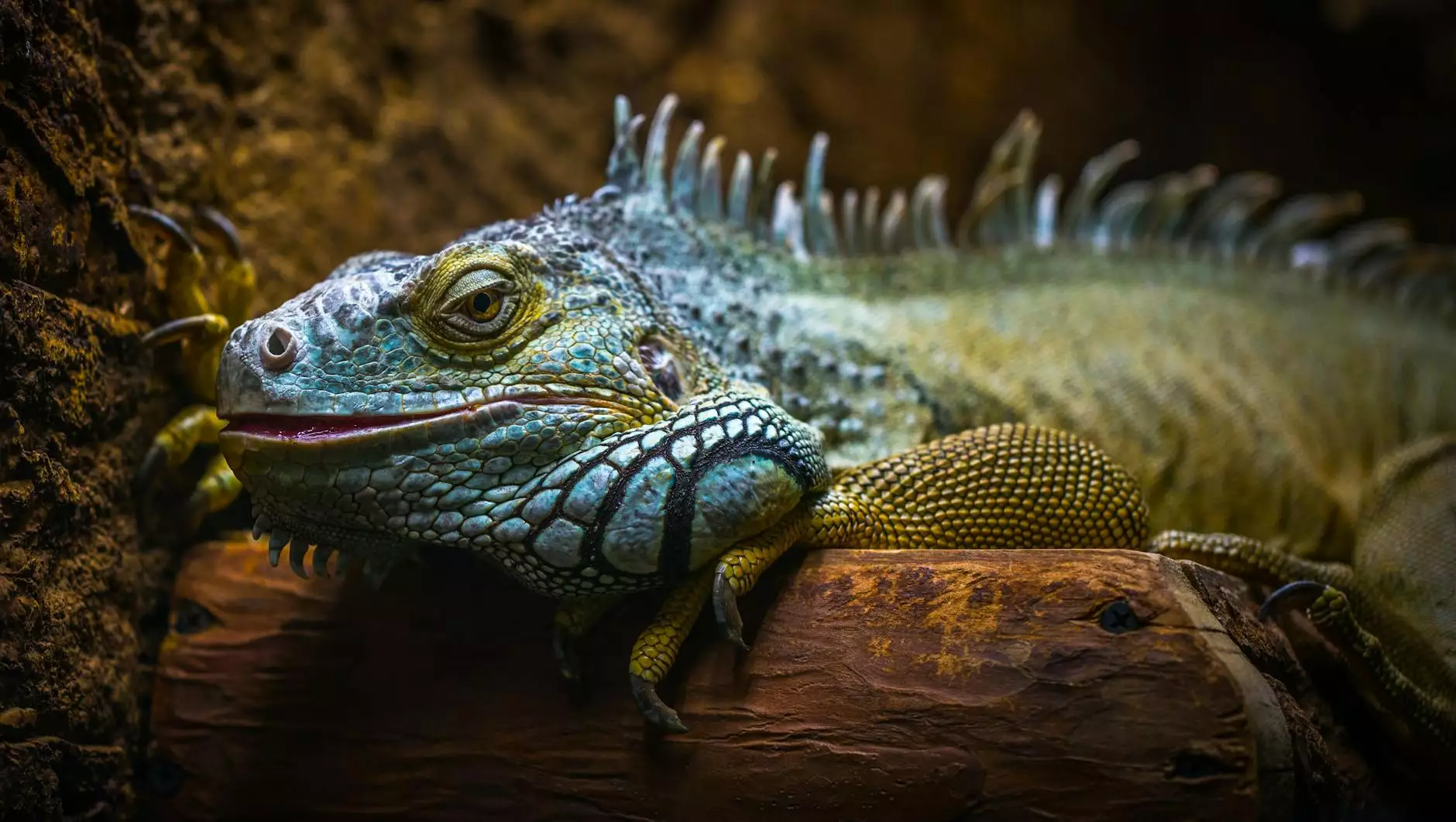Lizards as Pets: The Ultimate Guide to Your Scaly Companion

When it comes to choosing a pet, many individuals and families consider traditional options like dogs and cats. However, there is a rising trend in the pet community that has captured the interest of reptile enthusiasts: lizards as pets. These incredible creatures bring a unique flair to pet ownership, offering a fascinating blend of beauty and mystery. In this guide, we will delve deep into the world of lizards as pets, from understanding their different species to their care requirements, making them an excellent choice for exotic pet lovers.
Understanding the Appeal of Lizards as Pets
Lizards are incredibly diverse creatures, with over 6,000 species inhabiting various environments across the globe. Their unique appearances, behaviors, and low-maintenance requirements often make them appealing choices for novice and experienced pet owners alike. Let's explore some reasons why lizards can be the perfect pet.
- Low Maintenance: Compared to traditional pets, lizards generally require less daily attention. They do not need to be walked or played with in the same way other pets do, which allows for a more flexible pet ownership experience.
- Space Efficient: Most lizards can be housed in relatively small spaces, making them ideal for apartment living or homes with limited outdoor areas.
- Educational Opportunities: Owning a lizard can be a great way for children and adults alike to learn about biology, ecosystems, and animal care.
- Unique Personalities: Each lizard has its own temperament, and many can become quite interactive with their owners, providing a rewarding bond.
Choosing the Right Species of Lizard
With so many species available, selecting the right lizard for your home is a crucial first step. Some popular choices for lizards as pets include:
1. Bearded Dragons
Bearded dragons are known for their friendly disposition and ease of care. They thrive in captivity and can exhibit a range of colors and patterns. Bearded dragons can be handled frequently and enjoy interacting with their owners, making them an excellent choice for families.
2. Leopard Geckos
Leopard geckos are nocturnal lizards that are popular for their striking appearance and gentle nature. They are relatively small, easy to care for, and adapt well to various living conditions. Their unique ability to shed their tails adds an interesting aspect to their care.
3. Crested Geckos
Crested geckos are native to New Caledonia and are recognized for their unique crests and vibrant colors. They are easy to handle and thrive in a humid environment. Their diet primarily consists of fruit, making them relatively simple to feed.
4. Corn Snakes
While not a lizard, corn snakes serve as an excellent introduction to reptile ownership. They are known for their docile nature, vibrant colors, and ease of care. Many owners appreciate their low maintenance requirements and the variety of color morphs available.
Essential Care Requirements for Lizards
Once you have selected your lizard, understanding and providing the proper care is essential for ensuring a happy, healthy pet. Here are some key care elements to consider:
Habitat Setup
Creating a suitable habitat is vital for the well-being of your lizard. Each species will have specific needs, but there are common elements that every lizard habitat should include:
- Enclosure: A secure and spacious enclosure is essential. Glass terrariums or plastic enclosures can be excellent choices.
- Heating and Lighting: Lizards are ectothermic, meaning they rely on external heat sources to regulate their body temperature. Providing a basking area and a cooler area is necessary for their health.
- Substrate: The substrate mimics their natural environment and can vary greatly. Options include gravel, sand, or reptile carpets, depending on the species.
- Decor: Plants, rocks, and hiding spots enhance the habitat, promoting natural behaviors and reducing stress.
Diet and Nutrition
Feeding a lizard the right diet is crucial for its long-term health. Depending on the species, a lizard's diet can range from insects to fruits, vegetables, and specially formulated pellets.
Here is a basic breakdown of common dietary needs:
- Insectivorous Lizards: Require a diet rich in live insects such as crickets, mealworms, and roaches.
- Herbivorous Lizards: Enjoy leafy greens, fruits, and specific pellets designed for plant-eating lizards.
- Omnivorous Lizards: Benefit from a mixed diet that includes both plants and animals.
Maintenance and Cleaning
Regular cleaning of the habitat is vital for preventing illness and maintaining a healthy environment. You should schedule:
- Weekly Spot Cleanings: Removing uneaten food and waste helps to keep the habitat fresh.
- Monthly Deep Clean: Depending on the substrate, a thorough cleaning every month is advisable.
- Regular Monitoring: Keep an eye on your lizard’s behavior, feeding habits, and physical condition for any signs of distress or illness.
Health Considerations for Your Lizard
Ensuring the health of your lizard is critical to its longevity. Here are some common health issues and preventive measures:
Common Health Issues
Lizards may experience various health problems, including:
- Metabolic Bone Disease: Caused by a calcium deficiency, leading to weak bones. Regular UVB exposure and a proper diet can prevent this.
- Parasites: Internal and external parasites can affect lizards. Regular checkups with a qualified vet can help catch these issues early.
- Respiratory Infections: Poor environmental conditions can lead to respiratory diseases. Maintain optimal temperature and humidity levels.
Regular Veterinary Care
Finding a veterinarian specializing in reptiles is crucial. Regular checkups can help identify health issues before they become serious. Bringing your lizard in for a vet evaluation once a year can be a great preventive measure.
Understanding Your Lizard's Behavior
Understanding the behavior of your pet lizard is essential for building a positive relationship and ensuring their well-being. Every lizard species has its unique set of behaviors, but there are some general tips to consider:
Handling and Interaction
Many lizards can be handled, but it is essential to do so gently and respectfully. Some general tips include:
- Be Calm: Approach your lizard slowly and calmly to reduce stress.
- Support Their Body: Always support their body when picking them up to avoid injury.
- Limit Handling Time: New lizards should have limited handling time to build trust.
Recognizing Stress or Illness
Paying attention to your lizard's normal behavior helps you recognize when something is off. Look for signs such as:
- Loss of appetite
- Lethargy or increased hiding
- Changes in color or texture of the skin
Final Thoughts: Embracing the World of Lizards as Pets
Owning a lizard as a pet can be a rewarding and enriching experience. By understanding their needs, providing adequate care, and learning about their behaviors, you can foster a long-lasting bond with these incredible creatures. As more pet owners seek unique companions, lizards continue to gain popularity, especially within the Pet Breeders category. Explore the various species, make informed choices, and enjoy the remarkable journey of lizard ownership.
In conclusion, lizards as pets offer a unique alternative to traditional pets and can provide endless joy and fascination. Whether you’re a seasoned reptile keeper or just starting your journey, following the guidelines outlined in this article will pave the way for a successful and fulfilling relationship with your scaly friend.
lizards pet








